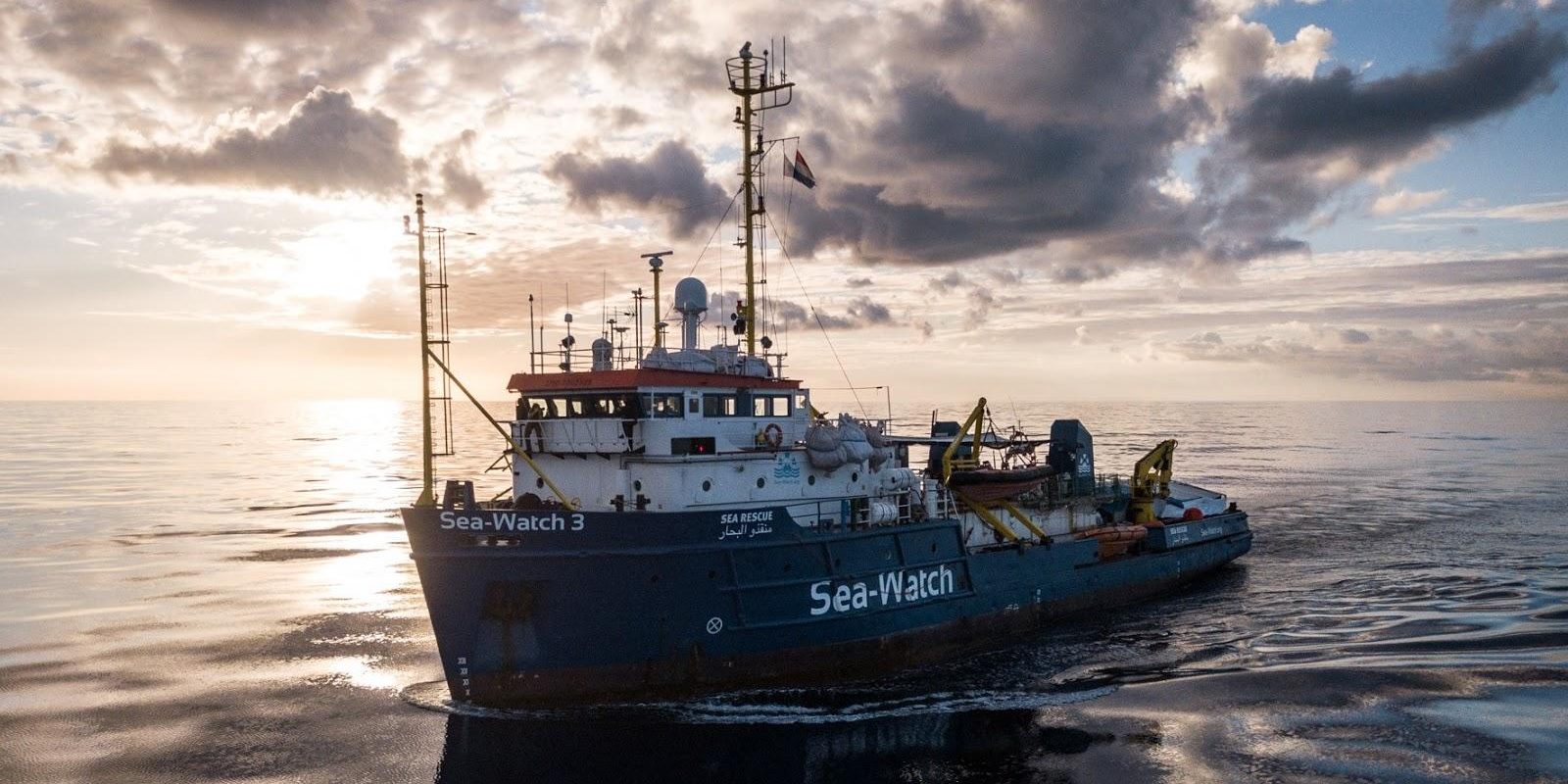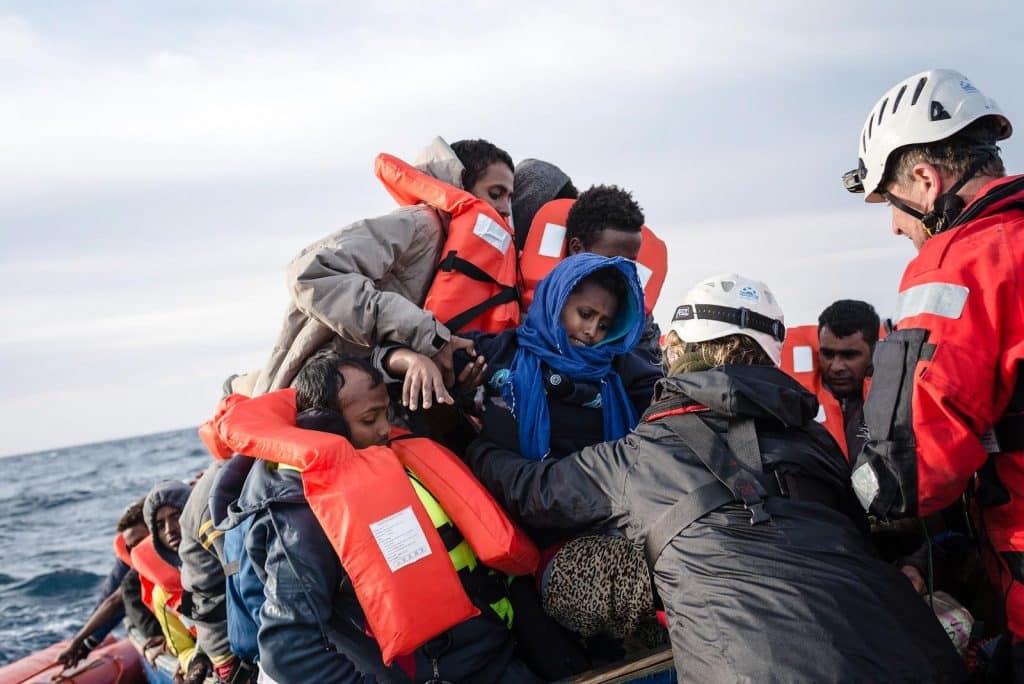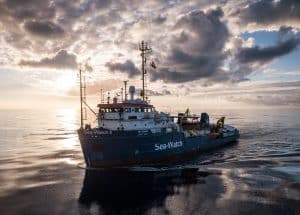The Sea-Watch 3 will depart today for a new rescue mission in the Central Mediterranean Sea.
Sea-Watch is increasingly concerned about recent developments at sea, where the new role attributed to the Libyan Coast Guard results in increasing push-backs and distressing circumstances during operations, for both the people rescued and the NGOs’ rescuers.
It remains clear that anyone found in distress at sea must be saved and brought to a place of safety (article 98 UNCLOS). The grave violations of human rights repeatedly reported against migrants in Libya blatantly show that people rescued cannot be returned and disembarked therein , in compliance with international human rights law, refugee law and maritime law.
Italy has been abandoned by the other EU member states in sharing the responsibility towards migration through the Central Mediterranean and is now resorting to restrictive measures, including the the seizure of two civilian rescue vessels, which both fulfilled maritime and humanitarian obligations in the Mediterranean.
29 leading academics and lawyers accuse Italy of encouraging returns to Libya in violation of international law and had therefore called for an urgency meeting of the UN Security Council and demanded to open investigations against Italy for complicity in crimes against humanity.
Despite European efforts to hinder solidarity and elude the duty to rescue, Sea-Watch continues its mission to protect the right to life and human dignity at sea and addresses the German government to ensure adequate support to Italy,the respect of the applicable international legal framework and the protection of the humanitarian space in the Central Mediterranean.
Contact for interview requests:
Tim Lüddemann
tel: 0176/21988953
Mail: presse@sea-watch.org
Contact for interview requests in Italy:
Giorgia Linardi
Mail: giorgia.linardi@sea-watch.org
Statements by Captain Pia Klemp and Sea-Watch Chairman Johannes Bayer:
“As long as people continue to get into distress at Europe’s deadly sea border, it is our moral and legal duty not to watch, but to do everything in our power to save people in distress and bring them to safety,” says Pia Klemp, captain of Sea-Watch 3. “After a visit to the camps in Libya last week, the Dutch Foreign Minister stressed that the conditions there are inhuman. As the captain of a Dutch-flagged ship, I am bound by maritime law and the Geneva Convention on Refugees,” says the 34-year-old from Bonn. “If I handed over rescued persons to the Libyans, who would take them back to places where they are threatened with torture, I would be liable to prosecution. For my colleagues from the Open Arms, however, exactly that became fateful. Basically, they are accused of having complied with the law. It is not acceptable that captains are explicitly called upon to break international law.”
“An expert opinion of the Scientific Service of the German parliament suggests that even the handover of the coordination of a rescue to the Libyan Coast Guard, as in the cases of rescues of Open Arms, Sea-Watch and, most recently, Aquarius, is a violation of international law. The daily breach of international law with European and Italian support must come to an end,” says Sea-Watch chairman Johannes Bayer. “At the same time, the other European states must finally help Italy to solve the humanitarian crisis in the Mediterranean. Italy was abandoned when it asked for support when the Italian Coast Guard saved more than a hundred thousand. We must also remember that the real people responsible for Italy’s current policy are in Brussels and Berlin. This makes it the utmost responsibility of the German government to find solutions that are in line with the Geneva Refugee Convention,” says Bayer.













